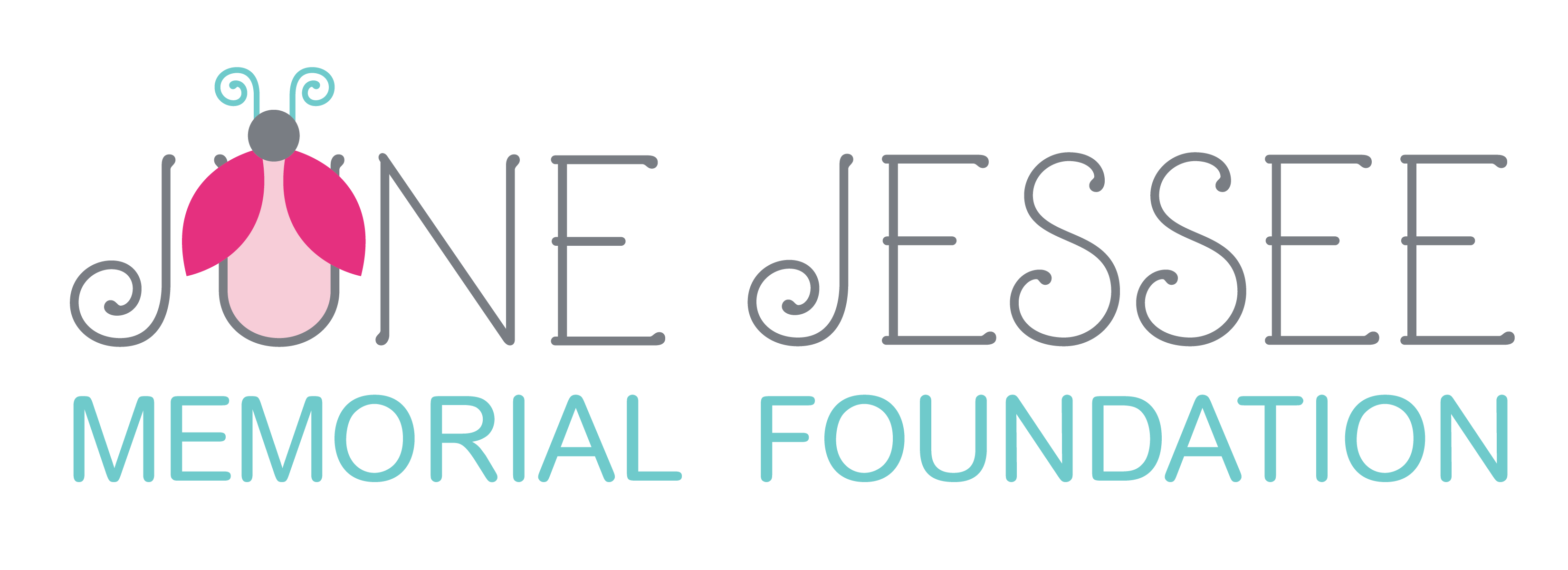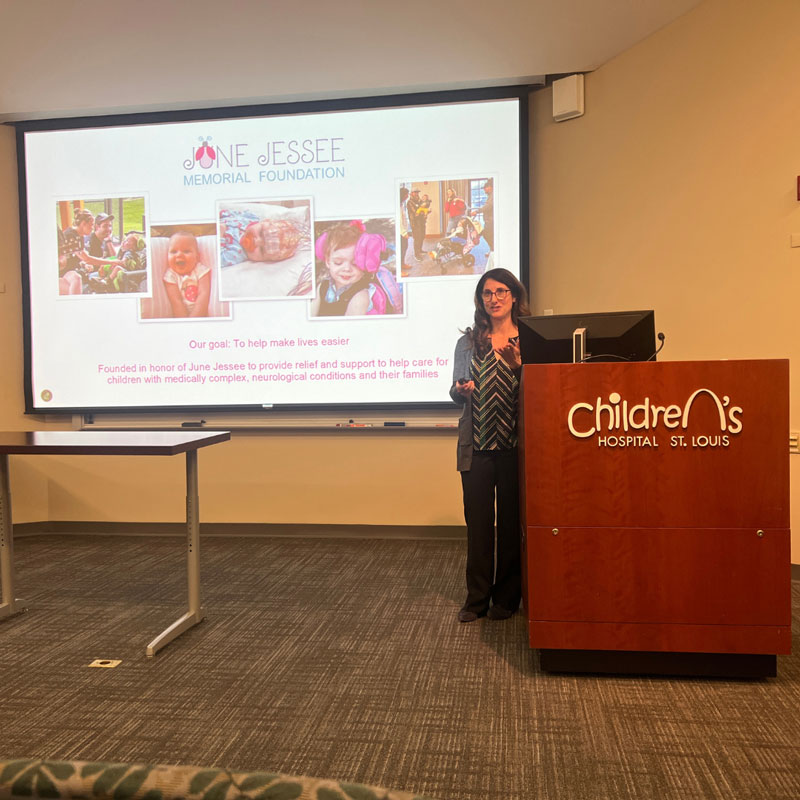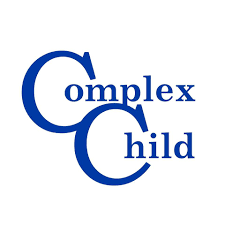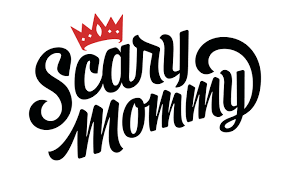Transforming patient care through connection and communication
Each year, the JJMF hosts a lecture at St. Louis Children’s Hospital’s Pediatric Grand Rounds, inviting a guest speaker to share important perspectives centered on caring for children with complex neurological conditions. This year, we were honored to have Dr. Jori Bogetz, from Seattle Children’s Hospital, present on the topic of “Improving care for children with severe neurological impairment and their families.” Dr. Bogetz, or Jori as she warmly introduces herself, is a pediatric palliative care physician and revered expert in caring for children with neurologic impairment. Additionally, she is an advocate for supporting parent caregivers, which is very much in alignment with the JJMF mission and one of the reasons we invited her to be this year’s speaker. Sharing her research and clinical experience, Jori enlightened St. Louis Children’s Hospital doctors on ways they can elevate care of children and their families by prioritizing communication and connection.
In part, our commitment to hosting this annual lecture revolves around the fact that children with complex neurological conditions frequently present with healthcare challenges that are not easily resolved—and sometimes persist despite many attempts for answers. Over the years, we have learned from medical practitioners of the psychological effects of continuously seeking answers for their patients yet not being able to “fix” the issue, leading to feelings of frustration and failure. Often, these feelings are shared by physicians and families; while everyone involved wants above all to help the child, the absence of an effective solution is difficult to accept. By providing a platform to learn from others with experience caring for children with these conditions, doctors can become better equipped to care for their patients, and their families, even when there are ongoing challenges.
The research Jori shared highlighted the heavy and difficult emotions felt by both doctors and patients’ families. A few key points stood out to me:
- Among pediatric residents, two-thirds of surveyed clinicians acknowledged their frustration related to caring for children who cannot be cured or function independently.
- Doctors voiced their lack of confidence in establishing goals of care with parents of their patients.
- Parents stressed that receiving information related to their child’s diagnosis and care is often overwhelming and causes complex emotions; this is exacerbated by oftentimes non-linear progression of the conditions.
With recognition of these facts, Jori admirably seeks to lessen negative feelings by focusing on ways to strengthen positive communication and connection between medical clinicians and parents. Through providing an individualized approach to each patient and family, making an effort to understand the child holistically, and valuing the perspectives of parents, physicians can foster a better relationship with families. The benefits are multifaceted, leading to better outcomes for children with complex neurological conditions, more comfort and peace for parents and families, and greater satisfaction in doctors’ and other medical professionals’ careers.
Jori shared a project her team has worked extensively on to help build this positive connection between clinicians and families: the photo narrative. In this model, families are guided to select a series of photos that help tell their child’s story visually. A series of intentional prompts lead the process, enabling parents to choose photos that display important aspects of their child’s life, such as the following:
- Who are the important people in you or your loved one’s life?
- What strengthens you or your loved one during stressful times?
- What are the things you or your loved one likes or enjoys doing?
- How can people know when you or your loved one is feeling well?
Once compiled, the photo narrative can be utilized as a tool for medical clinicians to quickly gain a better understanding of their patient, developing a stronger human connection rather than being limited to a more clinical frame of reference. The benefits of this model have been proven through Jori’s team’s research to have such an impact that a virtual implementation has been developed in collaboration with the healthcare information app known as “mejo”.
Following the lecture at St. Louis Children’s Hospital, we coordinated a special session for mental health therapists to learn from Jori and share their perspectives in coordination with private practice therapists Jenny Hoffman and Becca Williams at the Therapy and Wellness Collective. As strong proponents of mental healthcare for parent caregivers, it was important to us to share Jori’s message with therapists who provide ongoing support for this group. During the session, it was evident that care teams including a wide variety of medical clinicians can work together to surround children and their families with better care, collectively making a difference. The photo narrative project was a key discussion point, with ideas sparked regarding how the model could be incorporated into therapeutic treatment.
Our team was moved and inspired by Jori’s commitment to elevating care for children with complex neurological conditions and their families. It was an honor to learn from her expertise and passion for improving care for the patient population we care so deeply about, and uplifting to observe the groups of physicians and therapists who listened intently and displayed determination to provide better care. A question Jori posed at the beginning of her presentation resonated with me – “How do we take care that is good and make it great?” By taking to heart Jori’s advice on prioritizing communication and connection, I think a clear difference will be felt.
Special thanks to Dr. Jori Bogetz, M.D., Director, Research, Treuman Katz Center for Pediatric Bioethics and Palliative Care at Seattle Children’s







